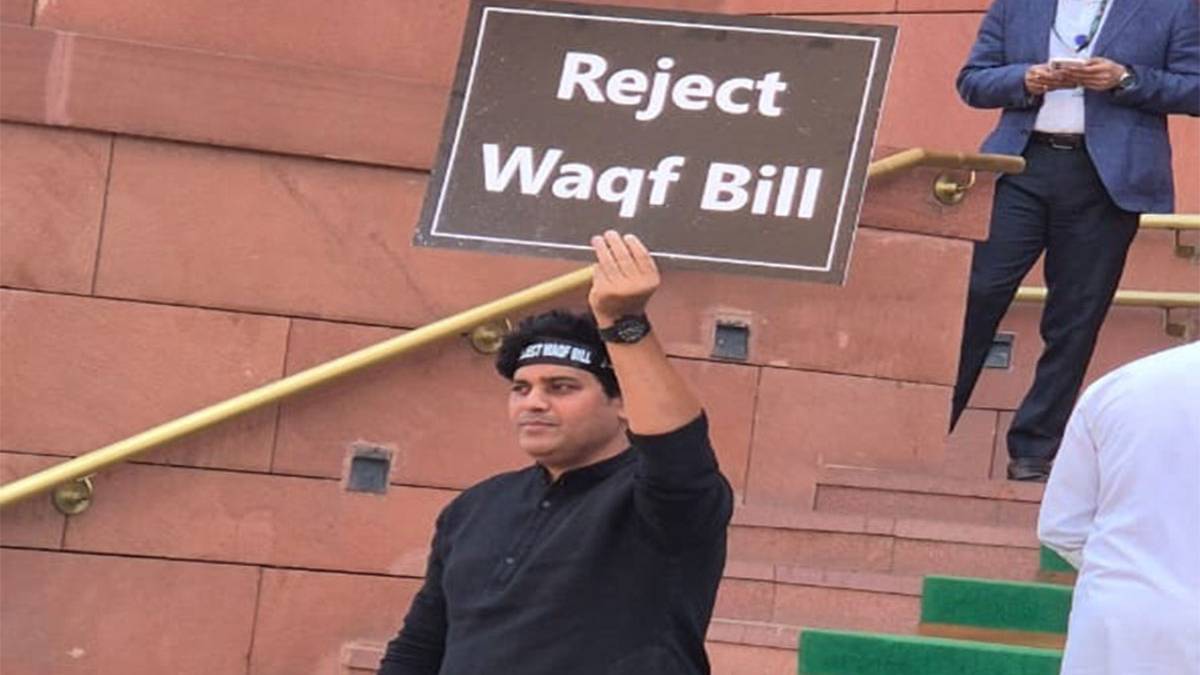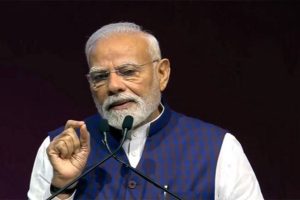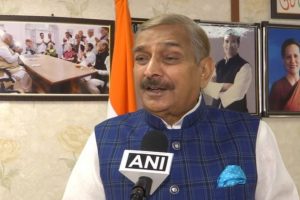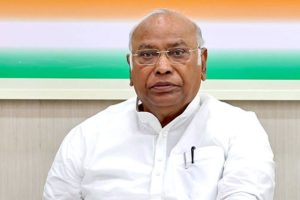Congress MP Imran Pratapgarhi staged a protest on Wednesday outside Makar Dwar in Parliament, opposing the Waqf Amendment Bill ahead of its scheduled tabling in the House. Wearing black attire and holding a placard that read “Reject Waqf Bill,” Pratapgarhi demonstrated his strong opposition to the proposed legislation.
The Waqf Amendment Bill of 2025, which seeks to amend the Waqf Act of 1995, is set to be introduced in Parliament for passage. The bill has faced significant resistance from the Congress party and other opposition groups, who argue that the amendments are unconstitutional and infringe upon minority rights.
Senior Congress leader K Suresh reaffirmed the INDIA bloc’s stance against the bill, stating that opposition members in the Joint Parliamentary Committee (JPC) have collectively decided to reject the proposed amendments. “The entire opposition is against this bill. Our members in the JPC have also decided to oppose it. Yesterday, the INDIA bloc leaders unanimously agreed to challenge the Waqf Amendment Bill in Parliament,” he said.
Congress MP Khaleequr Rahman accused the central government of pushing the bill forward in an “unconstitutional manner,” while Samajwadi Party MP Ram Gopal Yadav labeled the proposed amendments as “dictatorial and unconstitutional.” He further criticized the ruling party, stating, “Our party has opposed this bill from the start. They have the majority and will get it passed, but we want a thorough discussion so the country understands what they are doing.”
As the bill moves forward for debate and voting, both the Bharatiya Janata Party (BJP) and Congress have issued whips to their MPs, ensuring their presence in the House. The bill’s passage is expected to see heated exchanges between the ruling party and opposition members.





